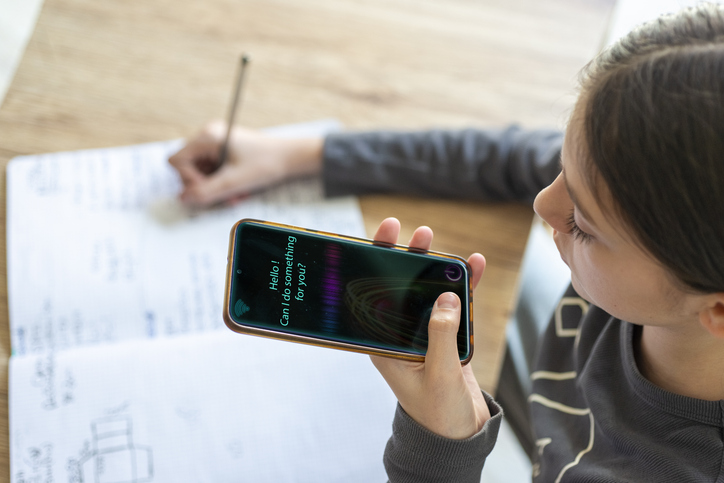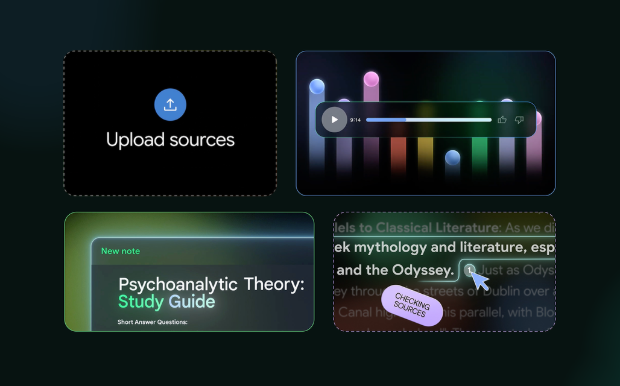AI-Powered Behavior Support: Leveraging Generative Tools for Individualized Classroom Interventions
The integration of AI into educational practices offers immense potential for enhancing teaching and learning experiences.

Tools and ideas to transform education. Sign up below.
You are now subscribed
Your newsletter sign-up was successful
In today's rapidly evolving educational landscape, the integration of artificial intelligence (AI) into classroom practices is becoming increasingly essential as educators harness its power to create personalized behavior intervention plans, modify curriculum materials for diverse learners, and design targeted instructional resources.
The options I present here are aimed at equipping educators with some practical strategies for leveraging AI in their teaching practices. Of course, they first need to acknowledge that AI is here to stay. The phrase, "The genie is not going back into the bottle" encapsulates the idea that AI's integration into various aspects of life, including education, is irreversible. They now have to embrace AI and explore its potential to enhance teaching and learning experiences.
One of the most difficult tasks reported by teachers is classroom management. Here are some generative AI tools to assist with classroom management and behavior interventions.
Behavior Intervention Planning with AI
Behavior intervention planning is a critical component of supporting students with diverse needs. AI can play a significant role in this process by providing tools that help educators develop personalized behavior intervention plans, which can be tailored to address the unique needs of each student, ensuring that interventions are both effective and evidence-based. Several AI-powered tools provide specific behavior plan generators, including Poe and MagicSchoolAI.
Goblin.tools is a set of tools to help break learning down into smaller pieces and create to-do lists for students as an example. It will also compile random thoughts and try to create a task list for students who need that level of organization.
Some of these tools offer innovative solutions for creating individualized educational plans (IEPs). For example, Easy-Peasy.ai provides an IEP generator that simplifies the process of developing comprehensive plans for students with special needs. Taskade.com and LogicBalls also provide IEP-generation tools.
Modifying Curriculum for Diverse Learners
AI tools offer valuable resources for modifying curriculum materials to better serve diverse learners. Tools such as Rewordify and Text Compactor are effective means of leveling text and summarizing content to make it more accessible to students with varying reading abilities. These tools enable educators to personalize materials and assignments, provide language support, and enhance communication and collaboration within the classroom.
Tools and ideas to transform education. Sign up below.
In addition to text modification, AI can be used to create new culturally focused content and utilize extended realities, such as augmented reality (AR) and virtual reality (VR), to bridge cultural gaps and provide immersive learning experiences. These engaging technologies can help students better understand and appreciate diverse perspectives, fostering a more inclusive and equitable learning environment.
Ethical Considerations and the Future of IoB
As AI continues to evolve, it is essential to consider the ethical implications of its use in education. The Internet of Behaviors (IoB) represents a future in which data collected from internet-enabled devices might be used to identify trends and inform decision-making. For example, SMART devices that track heart rates and other physiological data could potentially assist with classroom management by providing insights into student well-being and engagement. A SMART IoB device could alert a teacher or a paraprofessional when a student is nearing an outburst and allow for a proactive intervention.
However, the use of such data raises important ethical questions. Educators must ensure that AI tools and processes are implemented responsibly, with a focus on advancing equity, ensuring safety, and maintaining the privacy and security of student data. Continuous improvement and adherence to guidelines, such as those provided by the Minnesota Department of Education (MDE) and the North Carolina Generative AI Guidelines, are crucial for the responsible integration of AI in education.
Conclusion
The integration of AI into educational practices offers immense potential for enhancing teaching and learning experiences. By leveraging generative AI tools, educators can develop personalized behavior intervention plans, modify curriculum materials for diverse learners, and create targeted instructional resources.
As we navigate the ethical considerations and future applications of AI, it is essential to prioritize equity, student safety, and continuous improvement to ensure that AI serves educators as an ally in supporting student success.
Steve Baule served as a technology director, high school principal, and superintendent for 20+ years in K-12 education. He is currently the director of Winona State University’s online educational doctorate program in Minnesota.
